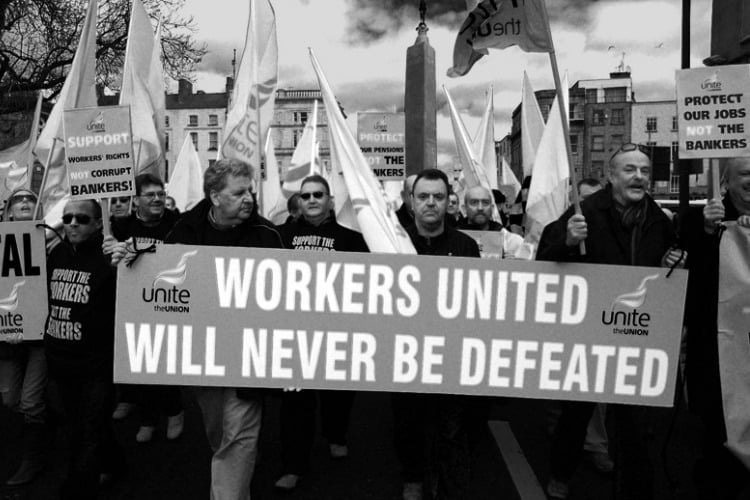Workers at a pump factory in Leeds refused a paltry offer from management back in May, consisting of a 6.5% pay increase and £275 one-off payment.
With inflation running high, employees at the Sulzer plant in Beeston, Leeds, voted to take strike action for the first time since 1982. Now, almost a month later, the workers are still out.
The Sulzer workers are striking every Friday, with the walkouts set to last for at least another two weeks, as they fight against a real-terms pay cut and attempt to bring the bosses to the negotiating table.
Profiteering
Sulzer is a wealthy Swiss-owned multinational company, which makes and instals industrial pumps for gas, oil, water, and nuclear plants. In 2021, the firm netted an enormous profit of £32.6 million.
The company’s highly-skilled workforce produces equipment for high-profile customers such as the National Grid.
Despite the vital importance of the workers’ labour, recent reports show that a whopping 55% of the business’ revenue goes directly into shareholders’ pockets.
In sharp contrast, on the picket line, we heard workers describing the effects of the significant fall in real wages that they’ve faced, especially with the ongoing cost-of-living crisis.
Low pay, compounded by the impact of inflation, is a key reason for the strike.
Obstacles
We spoke to striking workers, who commented on the obstacles they have faced in organising and taking action. This apparently includes direct interference from union-busting bosses.
The company, for example, has reportedly withdrawn overtime for people who have threatened to strike. If true, this is a clear and unambiguous attempt to break the strike, by discouraging workers from taking industrial action.
Other reports allege that management has been discriminating against unionised workers, threatening to remove promotions and career advancement options for employees who go out on strike.
Union organisers also mentioned their struggle against bureaucratic rules and regulations in preparation for the strike.

Workers will often face discrimination and attacks from the bosses; doubly so when they dare to fight back. This has also been the case in other recent strikes, such as that by concrete lorry drivers at Maen Karne in Cornwall.
The response must be full solidarity from the workforce and the wider labour movement, alongside escalated action. The unions must give their full support to any worker who is victimised by the bosses.
Despite the difficulties they have faced, the workers were in high spirits, and were receiving clear support from passers-by.
One worker we spoke to, who was active in the industrial disputes in the 1980s, drew parallels between the strikes then and now.
Indeed, similarly to then, Britain today is once again seeing workers moving to take action, as they struggle to keep their heads above water and fight to defend their livelihoods.
Socialist solution
With recent news that UK inflation remains high, officially at 8.7%, Unite and other unions must demand a rising, sliding scale of wages in any pay dispute, in order that workers’ wages are automatically tied to price increases.
If the bosses turn around and say that this is not possible, the unions must answer: prove it! This means opening up the company’s books to the workforce, so that they can see and decide for themselves if this is the case. 
Such a demand – for a sliding scale of wages – has been won historically in Italy, for example; and many workers across Europe are still managing to win such deals, even today. At Unite’s upcoming policy conference in July, a motion proposed by Socialist Appeal activists is set to be discussed, which would commit the union to fighting for this demand in all pay disputes.
If this motion passes, and the union actively and boldly takes up the demand for a sliding scale of wages, this would show the way forward for the whole labour movement in Britain – raising the sights of the working class as to what’s possible on the basis of militancy and struggle.
Alongside a programme of clear socialist demands – such as nationalisation, the planning of production, and workers’ control – these are the kind of radical solutions required to solve the cost-of-living crisis once and for all, and secure a decent future for working people.






